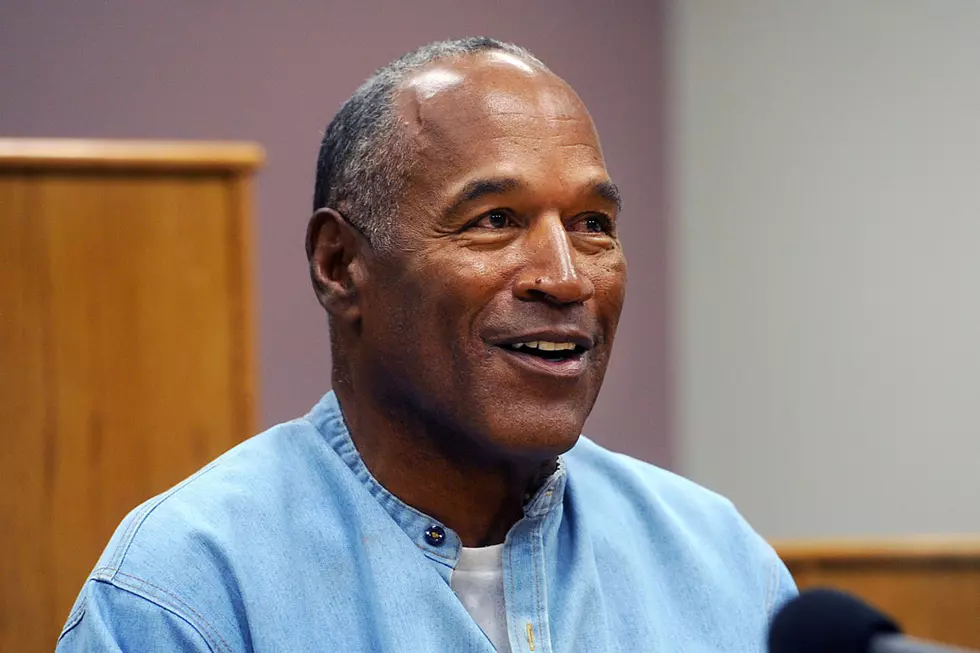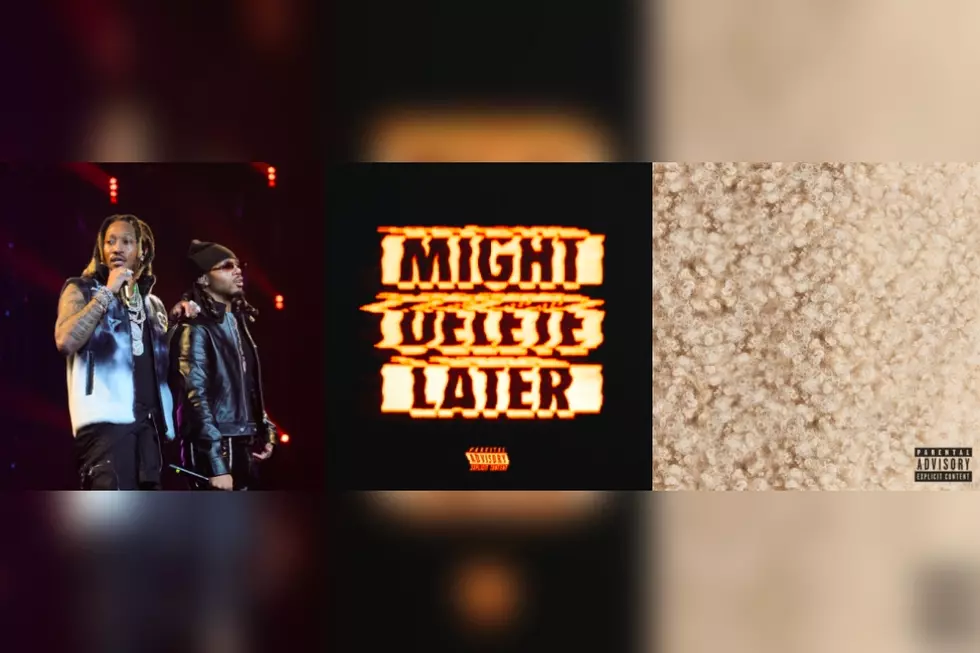
AZ Remembers Aziatic, 10 Years Later
"How can I be torn from the pages of history/ How can my name be scraped off the pyramid walls/When I sat with Pharoahs and Kings/You think you know, but you have no idea..."—"Rebirth," Aziatic (2002)
It's 2001, and after the release of his third studio album 9 Lives, Brooklyn MC AZ had endured his share of ups and downs. The latter album received mixed reviews, his buddy Nas was busy engulfed in one of rap's greatest rivalries with Jay-Z, while his label situation was up in shambles. Plus, the streets were growing impatient waiting on the rapper's '99 follow-up—hence his "Save Our Streets AZ" movement.
However, lo and behold the Visualiza would come correct on 2002's Aziatic, an album that finds the Doe or Die MC ripping out pages from his personal life story ("Wanna Be There," "Rebirth") to share over melodic and soulful production—perfectly complimenting his style of rhyme. Often referred as his "comeback" release, the album garnered the lyrical dynamo a Grammy nod for the Nas-assisted, "The Essence," and was considered a critical success.
Celebrating the album's 10 year anniversary today (June 11), XXL reached out to AZ to discuss the impact and creation process that went into recording Aziatic.—Ralph Bristout (@RalphieBlackmon)
XXLMag.com: It's been 10 years since this LP arrived, how does it feel? Are you usually aware of these anniversaries when they arrive or does it just hit you as a surprise?
AZ: It hits me ‘cause I’m always thinkin' about the next move. Years fly when you makin' moves. Know what I’m sayin'? I’m already thinkin' about this [next] album I'm on so, it'll always hit me like, “Yo, that shit’s been out for 10 years."
It’s funny, though, because 9 Lives' 11th year anniversary falls the day after Aziatic, June 12. Crazy, right?
Yeah. [Laughs.] You got me, man.
So let's talk about this Aziatic album. It was critically acclaimed and you even garnered a Grammy nod for “The Essence” record. From a fan’s and critic's perspective, this album seems like it was a comeback album for you. Would you agree?
I mean for all that I’ve been through, it was like, "Okay, I've reached a point where now I’m comfortable with the game, you know? I just felt comfortable at that time because it was like, actually, the turning point in hip-hop at that time [and] a turning point for me.
Indeed. Before this album, you were dealing with a lot from label politics and tons of ups and downs, but on the project you seemed a more confident and comfortable as ever. “Resurrected like Christ, off the cross on Easter...”
You right. I was comfortable at that time. I just felt comfortable. I was in a good position. Prior to me gettin' on Motown—'cause that came out on Motown—I was makin' the transition. I was doin' that S.O.S.A. CD on the streets and that’s what got me into that Motown deal. And, you know, we was workin' out the kinks around that time, as far as when 9 Lives came out, as far as gettin' familiar with each other and then when Aziatic came out, I was like, "Okay, I feel good now. I’m in a good position."
How long did it take you to record for the project?
I couldn’t remember, but I knew it wasn’t long. Two or three months probably, to get the album done. I don’t work on albums too long. Like, I mean if I’m in a zone, I lock in. I lock in the project, and I try to knock it out. I never was the type to drag a project along. Once I’m committed, I’m committed.
What was your original mentality going into Aziatic?
I think around that time there was so much goin' on in hip-hop, there was so much battles and beefs. It was right after the Nas and Jay beef. Right after that, I was on that Stillmatic joint ["The Flyest"], and I know I was gettin' love and was in a good position. My mind frame [then] was like, "Now, I know I’m a great lyricist, but now it’s time for the people to know I’m lyricist." I got love for the game and the culture of hip-hop, so I was like, "I'm goin' to let my presence be felt right now," and that was my whole purpose.
Now before the LP's release, as you mentioned, there was that highly publicized Jay and Nas beef. You stayed neutral of course, but with you being from Brooklyn—and even making an appearance in Jay's "Dead Presidents" video— and of course your relationship with Nas, how did all that affect you?
I knew that at that time we dealin' with rap—these are two bosses, and I knew victory lied on what they were goin' through. It wasn’t gonna get more crazier than that, and at the time, you know, Nas was in his zone. He was doin' what he was doin'. He was goin' through whatever he was goin' through, so it wasn’t like we were totally locked in like, “This is what we gon’ do; this the game plan.” There was no game plan. He took the blows how he took them, and I guess he wanted to handle them how he handled them. Like, we didn’t politic on how he was gon’ do it. I didn’t even know that “Ether” was gon’ come out until it hit. So, that’s how he was workin', so more or less, I was just seein' everything play out and, it played out, the way it was supposed to.
FOR MORE ON AZ AND HIS AZIATIC LP, GO TO PAGE 2
I feel like you got a little personal on Aziatic, as well as affirming your stance as a legendary MC. For example, on the intro you rap, “How can I be torn from pages of history?” And on "Wanna Be There" you mention, “Open the lane up, so I can let these fuckers pay.”
Right. 'Cause it was like, "Yo, this is a legacy we tryin' to leave behind. Fans change and the game changes. And, the infrastructure of the business changes, but I was like, "You know what? I got to let people know I’m here to stay." And, I think with that album, I solidified my presence. Regardless of whom or what, if I stop today, rappin' they’ll know like, “Okay, he put his work in.”
One of the things I think that often gets unnoticed was your Grammy nod for Best Rap Performance by a Duo or Group at the 45th Grammy Awards for "The Essence" with Nas. Let's talk about how that track came about.
After Stillmatic we just locked in and do what we do all the time. That was like our eighth album we did together.
Were you two actually in the studio together recording that record?
All our songs in the studio together, as far as with me and him.
You can sort of tell because you guys share quite the chemistry on these records.
Yeah, we always in the studio together when we make our songs. I don’t think there’s no song that we ever did where we was like sendin' it back and forth. We never did that.
What do you think it is about the two of you on a track together that just gets the critics and fans excited?
I mean we started out together. Me bein' on his first album, like, we have that connection. We gave that feelin'; we gave that initial feelin' to the game when we first came out. He repaid me with the same favor on my Doe or Die and then you know I was on his It Was Written, after that we did The Firm—we kept that one-two punch.
Now one of my favorite joints on Aziatic was “Fan Mail.” The record is deep, enlightening as well as introspective, but it fades out during the second verse. I know a lot of people that’s still waiting on that second verse to continue, so...
I know, right? And, that was my purpose because fan mail has never stopped; they still come. I wanted to do a part two, part three, part four, part five—
Wow.
That’s like one of those sequels because I get so [much] mail from so many different perspectives and so many different people, young kids, older people, women, peers—like, you get so many different zones, I wanted to just reflect that on all my albums, but I haven’t gotten to part two; I might do that for a mixtape.
What are some of your favorite joints off the album?
Off the Aziatic album was the intro, "Once Again" that was like I expressed myself well. "Paradise (Life)"—that was crazy.
What was it about "Paradise (Life)" that made it your favorite?
I was in Cali when I recorded that. So, it was another zone. I was in another zone. I was just expressin' my feelings. That whole album was really expressin' myself to the 10th power to be honest. Even with “A-1 Performance,” I liked. “Wanna Be There” was definitely one of my favorite ones. Each joint was a different zone for me. Yeah.
The “I’m Back” video was dope. You took a page out of Training Day for that right?
Yeah. We did that Training Day. So that was good right there.
On a last note—one of my favorite lines on the album was, “I give niggas a reason to sweat, it’s not a test/verbally, it’s like I’m seen as the best..." So, what’s next for the Visualiza? Upcoming projects? What's the update on Doe Or Die II?
Oh yeah. Right now, I’m puttin' together that Doe or Die II album. I’m workin' right now, and like I said, lyrically, I still feel I’m one of the best lyrically. I’m definitely in that conversation, my name got to be brought up and if not, I’m still gon’ make the people believers.
More From XXL









